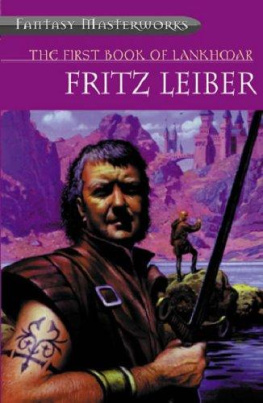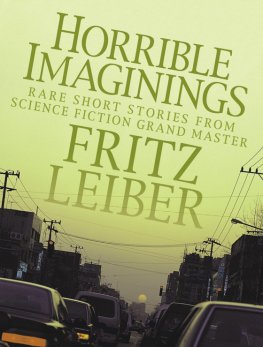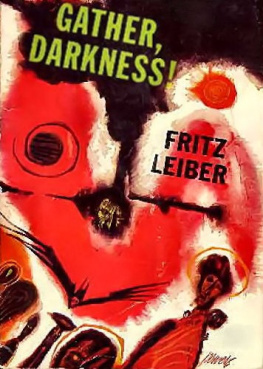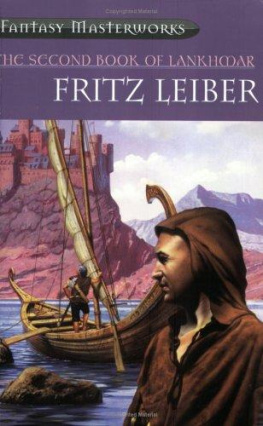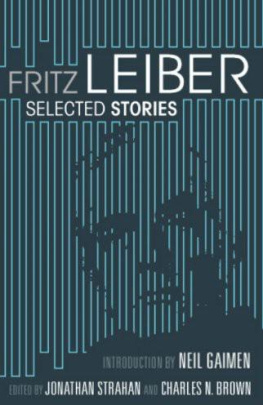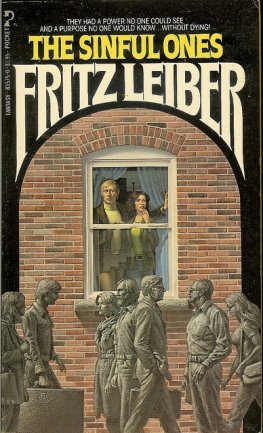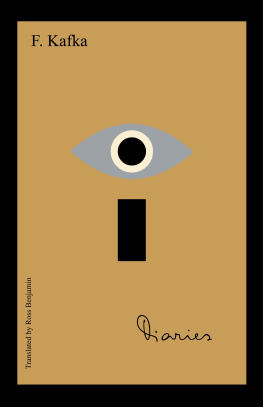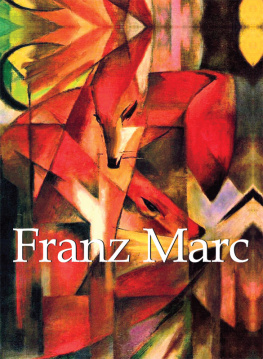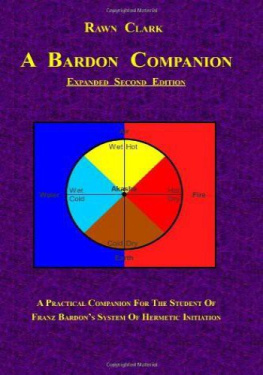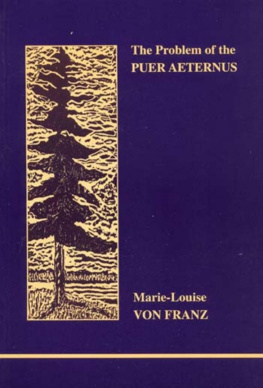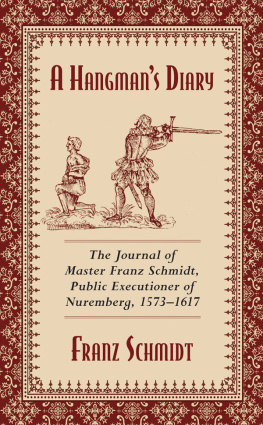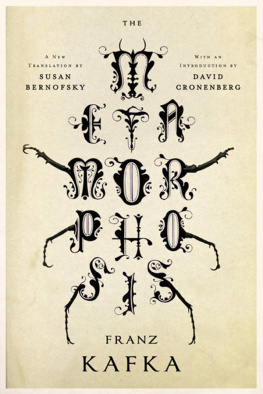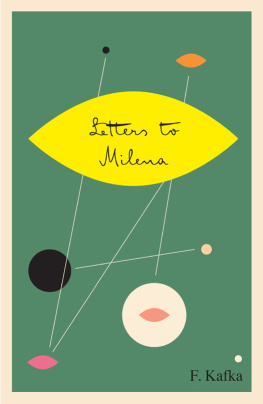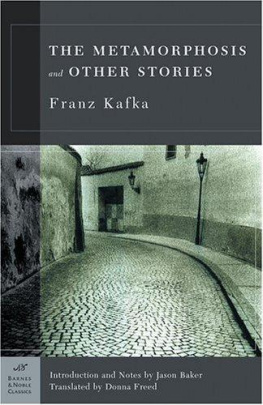Our Lady of Darkness
by Fritz Leiber
But the third Sister, who is also the youngest! Hush! whisper whilst we talk of her! Her kingdom is not large, or else no flesh should live; but within that kingdom all power is hers. Her head, turreted like that of Cybele, rises almost beyond the reach of sight. She droops not; and her eyes, rising so high, might be hidden by distance. But, being what they are, they cannot be hidden; through the treble veil of crape which she wears the fierce light of a blazing misery, that rests not for matins or for vespers, for noon of day or noon of night, for ebbing or for flowing tide, may be read from the very ground. She is the defier of God. She also is the mother of lunacies, and the suggestress of suicides. Deep lie the roots of her power; but narrow is the nation that she rules. For she can approach only those in whom a profound nature has been upheaved by central convulsions; in whom the heart trembles and the brain rocks under conspiracies of tempest from without and tempest from within. Madonna moves with uncertain steps, fast or slow, but still with tragic grace. Our Lady of Sighs creeps timidly and stealthily. But this youngest Sister moves with incalculable motions, bounding, and with tigers leaps. She carries no key; for, though coming rarely amongst men, she storms all doors at which she is permitted to enter at all. And her name is Mater Tenebrarumour Lady of Darkness.
Thomas De Quincey, Levana and Our Three Ladies of Sorrow,
Suspiria de ProfundisThe solitary, steep hill called Corona Heights was black as pitch and very silent, like the heart of the unknown. It looked steadily downward and northeast away at the nervous, bright lights of downtown San Francisco as if it were a great predatory beast of night surveying its territory in patient search of prey.
The waxing gibbous moon had set, and the stars at the top of the black heavens were still diamond-sharp. To the west lay a low bank of fog. But to the east, beyond the citys business center and the fog-surfaced Bay, the narrow ghostly ribbon of the dawns earliest light lay along the tops of the low hills behind Berkeley, Oakland, and Alameda, and still more distant Devils MountainMount Diablo.
On every side of Corona Heights the street and house lights of San Francisco, weakest at end of night, hemmed it in apprehensively, as if it were indeed a dangerous animal. But on the hill itself there was not a single light. An observer below would have found it almost impossible to make out its jagged spine and the weird crags crowning its top (which even the gulls avoided); and breaking out here and there from its raw, barren sides, which although sometimes touched by fog, had not known the pelting of rain for months.
Someday the hill might be bulldozed down, when greed had grown even greater than it is today and awe of primeval nature even less, but now it could still awaken panic terror.
Too savage and cantankerous for a park, it was inadequately designated as a playground. True, there were some tennis courts and limited fields of grass and low buildings and little stands of thick pine around its base; but above those it rose rough, naked, and contemptuously aloof.
And now something seemed to stir in the massed darkness there. (Hard to tell what.) Perhaps one or more of the citys wild dogs, homeless for generations, yet able to pass as tame. (In a big city, if you see a dog going about his business, menacing no one, fawning on no one, fussing at no onein fact, behaving like a good citizen with work to do and no time for nonsenseand if that dog lacks tag or collar, then you may be sure he hasnt a neglectful owner, but is wildand well adjusted.) Perhaps some wilder and more secret animal that had never submitted to mans rule, yet lived almost unglimpsed amongst him. Perhaps, conceivably, a man (or woman) so sunk in savagery or psychosis that he (or she) didnt need light. Or perhaps only the wind.
And now the eastern ribbon grew dark red, the whole sky lightened from the east toward the west, the stars were fading, and Corona Heights began to show its raw, dry, pale brown surface.
Yet the impression lingered that the hill had grown restless, having at last decided on its victim.
Two hours later, Franz Westen looked out of his open casement window at the 1,000-foot TV tower rising bright red and white in the morning sunlight out of the snowy fog that still masked Sutro Crest and Twin Peaks three miles away and against which Corona Heights stood out, humped and pale brown. The TV towerSan Franciscos Eiffel, you could call itwas broad-shouldered, slender-waisted, and long-legged like a beautiful and stylish womanor demigoddess. It mediated between Franz and the universe these days, just as man is supposed to mediate between the atoms and the stars. Looking at it, admiring, almost reverencing it, was his regular morning greeting to the universe, his affirmation that they were in touch, before making coffee and settling back into bed with clipboard and pad for the days work of writing supernatural horror stories and especially (his bread and butter) novelizing the TV program Weird Underground, so that the mob of viewers could also read, if they wanted to, something like the mlange of witchcraft, Watergate, and puppy love they watched on the tube. A year or so ago he would have been focusing inward on his miseries at this hour and worrying about the days first drinkwhether he still had it or had drunk up everything last nightbut that was in the past, another matter.
Faint, dismal foghorns cautioned each other in the distance. Franzs mind darted briefly two miles behind him to where more fog would be blanketing San Francisco Bay except for the four tops thrusting from it of the first span of the bridge to Oakland. Under that frosty-looking surface there would be the ribbons of impatient, fuming cars, the talking ships, and coming from far below the water and the mucky bottom, but heard by fishermen in little boats, the eerie roar of the BART (Bay Area Rapid Transit) trains rocketing through the tube as they carried the main body of commuters to their jobs.
Dancing up the sea air into his room there came the gay, sweet notes of a Telemann minuet blown by Cal from her recorder two floors below. She meant them for him, he told himself, even though he was twenty years older. He looked at the oil portrait of his dead wife Daisy over the studio bed, beside a drawing of the TV tower in spidery black lines on a large oblong of fluorescent red cardboard, and felt no guilt. Three years of drunken griefa record wake!had worked that all away, ending almost exactly a year ago.
His gaze dropped to the studio bed, still half-unmade. On the undisturbed half, nearest the wall, there stretched out a long, colorful scatter of magazines, science-fiction paperbacks, a few hardcover detective novels still in their wrappers, a few bright napkins taken home from restaurants, and a half-dozen of those shiny little Golden Guides and Knowledge Through Color bookshis recreational reading as opposed to his working materials and references arranged on the coffee table beside the bed. Theyd been his chiefalmost his solecompanions during the three years hed laid sodden there stupidly goggling at the TV across the room; but always fingering them and stupefiedly studying their bright, easy pages from time to time. Only a month ago it had suddenly occurred to him that their gay casual scatter added up to a slender, carefree woman lying beside him on top of the coversthat was why he never put them on the floor; why he contented himself with half the bed; why he unconsciously arranged them in a female form with long, long legs. They were a scholars mistress, he decided, on the analogy of Dutch wife, that long, slender bolster sleepers clutch to soak up sweat in tropical countriesa very secret playmate, a dashing but studious call girl, a slim, incestuous sister, eternal comrade of his writing work.


